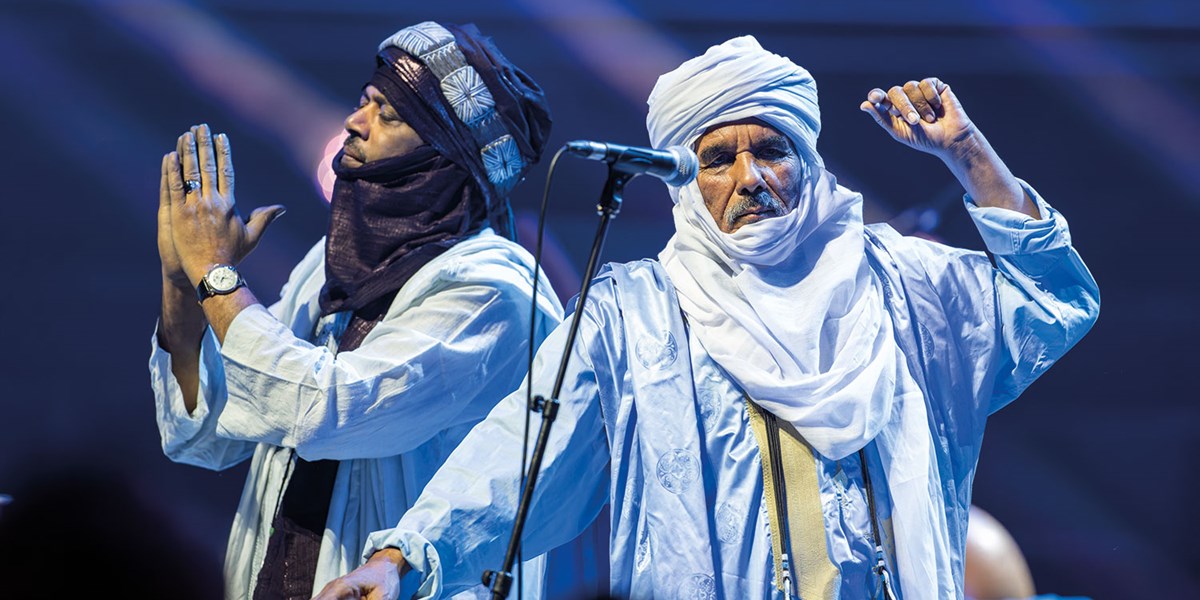Thursday, October 3, 2024
Tinariwen: Royal Sahara Blues at the BBC Proms
By Tim Cumming
Relentless riffs at the ready as original Touareg rock’n’rollers Tinariwen head to London’s Royal Albert Hall. Tim Cumming sizes up their BBC Proms debut…

Tinariwen at their BBC Proms debut on August 28 (photo: Andy Paradise)

Register now to continue reading

Thanks for visiting the Songlines website, your guide to an extraordinary world of music and culture. Sign up for a free account now to enjoy:
- Free access to 2 subscriber-only articles and album reviews every month
- Unlimited access to our news and awards pages
- Our regular email newsletters

